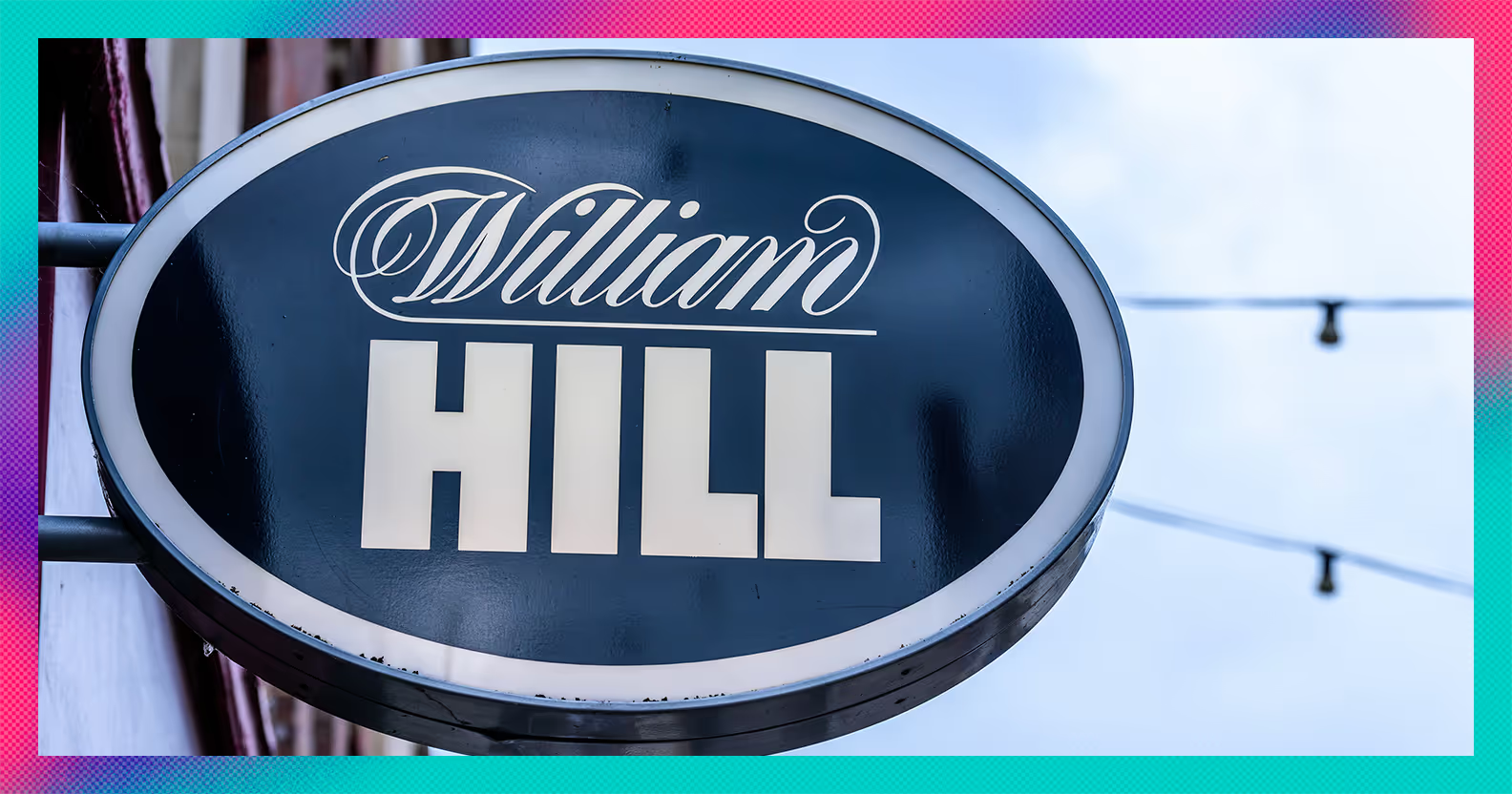Investing for the long-term has never been so important.
Those gold-plated defined benefit pensions with guaranteed-for-life income streams our grandparents enjoyed are hard to find nowadays. That puts the ball in our court and means we have more responsibility to save for our own retirement than pretty much any other generation.
Whether you are pension planning in your 20s and 30s or saving for retirement in your 40s and 50s, chances are those long-term savings will be extremely important to the lifestyle you can live in your third age.
Freetrade SIPP
If you fancy putting your money to work in a pension, the Freetrade Pension (self-invested personal pension) might be able to help. It lets you take control of those tax-efficient pension savings for a monthly fee of £9.99 per month, or £7 per month if you are a Freetrade Plus member.
You can invest for your retirement through a wide range of assets like UK and US shares, ETFs, bonds and investment trusts. The assets in Freetrade’s universe cover every sector you can think of, including green energy, consumer products, technology, pharmaceuticals and whatever else makes the world go round.
Most popular SIPP investments on Freetrade
As of May 2021, here are the most popular assets held in Freetrade SIPP accounts.
It’s important to highlight that this is a wrap-up, not a suggestion or recommendation that you buy or sell any of the securities mentioned.
Remember that everyone has their own goals and unique financial circumstances. These, along with your tolerance for investment risk and time horizon, should inform the mix of assets in your portfolio.
Our resource hub for investing in the stock market might be able to help make that mix a bit clearer for you. And if you are still unsure of how to pick investments, speak to a qualified financial advisor.
- Tesla
- Apple
- Argo Blockchain
- NIO
- iShares Global Clean Energy UCITS ETF (Dist.)
- Palantir
- Scottish Mortgage Investment Trust
- Amazon
- iShares Core FTSE 100 UCITS ETF (Dist.)
- Coinbase
Discover here the most traded shares over the past week on the Freetrade app
1. Tesla
Tesla is really splitting the pack. But investors on either side of the ‘Is Tesla overvalued?’ debate are unlikely to see eye to eye because they’re often essentially looking at two different stocks.
Behind one is a car manufacturer with a loose cannon at the helm, and behind the other is a force for change, the likes of which the world has probably never seen.
As an investor, if you’re attracted to the prospect of revolutionising the way the world uses energy, and exploring interplanetary travel, it’s no wonder you won’t be drawn into conversations around Tesla’s current production volumes versus Toyota.
In this sense we just have to remember what we actually take into account when we value companies. First, we look at what value their current operations are creating but we also have to leave room for what they are genuinely capable of creating next.
For Tesla, those plans lie far beyond the typical corporation planning to open a new office or set up in a new country. That’s what makes the future so exciting for supporters, and so unnerving for detractors. Case in point is the company’s foray into crypto - it takes the focus even further away from autos, puzzling the bears and enlivening the tech-forward bulls.
Using a SIPP to invest in that long-term theme is clearly attractive for investors though. If the company goes on to do great things it is likely to involve breaking new ground and overcoming a lot of obstacles.
That can carry quite a bit of short-term volatility and might be one reason investors are choosing to hold the stock in such a long-term account.
2. Apple
Some investors have been calling the top of the iPhone market for years, pointing to increasing prices, fewer enhancements and less of a public fervour around new product releases.
But the iPhone 12’s 5G connectivity coupled with consumers having a few more quid in their savings (and maybe feeling justified in shelling out for tech over the year) have propped up phone revenues in the latest quarter.
iPhone sales came in $6.4bn higher than predicted in Apple’s recent Q2 earnings, with Mac sales up 33% and sales in the important Chinese market doubling.
The result was a huge boost for profits, up to $23.6bn from $11.3bn for the same period last year.
Reflecting upon super sales thanks to a unique set of circumstances risks missing the forward-looking nature of the stock market though.
But even if the commute is back in fashion later this year, Cook doesn’t see an almighty drop-off in demand coming for Apple kit. He said, “Where this pandemic will end, it seems like many companies will be operating in a hybrid kind of mode.”
Investors hoping for a bit of news away from device mania might have been attracted to the announcements concerning the rest of Apple’s portfolio.
The firm is pumping over $430m into US suppliers and data centres, and Apple TV+ productions, adding 20,000 new jobs over the next five years.
3. Argo Blockchain
Just like gold bugs often opt for the miners instead of investing in the metal itself, investors getting involved in the crypto sector have had one eye on firms like Riot, Online and Argo Blockchain.
Shares in the Bitcoin miner hit the high notes in February but it’s been a shakier path since then.
The rise in the price of Bitcoin has clearly been a boon for the firm, with many investors piling cash into businesses with exposure to the asset class.
But recent concerns over the energy taken to mine the coin have dented its momentum and sent Argo down with it.
The firm isn’t lying down though. Having spoken to Elon Musk over the weekend, Argo Blockchain chief exec Peter Wall said, “Today is a good day for the planet.”
His admission that the crypto mining industry has to “improve sustainable mining practices and take ESG concerns seriously” might not come as a surprise to Argo shareholders though.
The firm has stated a significant portion of its facilities run on hydroelectric power and it had already signed the Crypto Climate Accord in 2021, in a bid to achieve “net-zero emissions from electricity consumption” by 2030.
For SIPP investors, these nods to sustainability are important. The crypto sector is still very much in its infancy but the eventual leaders need to show they are in for the long haul, not a flash-in-the-pan fad.
4. NIO
Mention Tesla and it’s only a matter of time before someone brings up Chinese EV car maker NIO.
It’s one of a number of electric vehicle firms competing with Tesla in the East, along with Li Auto and Xpeng.
And since consumers in the country buy about half of all the world’s electric cars every year, investors have been drawn to the firms springing up to serve them.
Recent safety concerns over Tesla vehicles in the country might be behind a bigger adoption of some of the homegrown manufacturers but it hasn’t been smooth sailing for NIO in particular over the past 15 months.
NIO was snatched back from the brink of bankruptcy by its local Hefei government in 2020.
The episode highlights just how difficult it can be to produce such an intricate new technology, even with an audience the size of China’s.
But with that risk there also comes the opportunity to change the auto world as we know it.
The Chinese government’s $1bn cash injection into NIO fits neatly alongside the country’s bid to become a global green energy superpower.
Last February’s helping hand is a sign there is a greater goal here, one the state will aim to reach ruthlessly. China has pledged that a quarter of all car sales by 2025 must be powered by ‘new energy’, and must not be reliant on petrol or diesel.
And further afield The Economist predicts 3% of cars sold in 2021 will be ‘pure electric or a plug-in hybrid’ - a figure that could rise to 20-25% by 2030, or 20m vehicles per year.
As with any emerging technology, investors are likely to see further volatility but the prospect of growth might entice those with strong nerves to stick around.
5. iShares Global Clean Energy UCITS ETF (Dist.)
The rise in adoption of environmental, social and governance (ESG) focused investing has driven many investors into clean and green investing strategies.
That has meant a boom in popularity for iShares Global Clean Energy. The ETF counts the likes of Plug Power, NextEra Energy and SolarEdge Technologies among its top holdings in its aim to give investors access to the companies shaping the renewable energy sector.
The ETF tracks the S&P Global Clean Energy Index, which recently underwent a shake-up, increasing its constituents from around 30 to nearly 100.
This gives investors a less concentrated approach to the sector but, as recent months have shown, any sector-wide concerns are likely to weigh on performance considerably.
For investors looking for long-term access to a global shift away from fossil fuels towards future-ready energy technology, the ETF remains one of the most popular investment choices.
6. Palantir
There’s an air of intrigue among investors about big data analytics firm Palantir, what it does, who it serves and how it makes its money. We got a similar wave of attraction to the recent Darktrace IPO in the UK.
But, for now at least, Palantir seems to have built up significant interest among shareholders, who are keen to stay exposed to what chief exec Alex Karp has in store next.
Still a relatively new market entrant, the software firm recently released its first quarter earnings for 2021. In the update, the company reported increased revenue numbers of just under 50% compared to 2020, with sales totalling $341m for the first three months of the year.
Of that amount, $208m was from government agencies, both in the US and abroad, and the remainder came from companies.
One swallow doesn’t make a summer but it’s a positive start to Karp’s goal of delivering annual revenue growth of 30% or more from 2021 through to 2025.
Stability of this kind means winning large and long-term clients. For Palantir, that might mean going beyond the corporate sphere.
The firm said in a regulatory filing, prior to going public, it wants to be “the default operating system for data across the US government.”
That suggests the firm could become more akin to a government contractor than a regular software business.
7. Scottish Mortgage Investment Trust
The only investment trust to be featured in the top 10 here, SMT managers James Anderson and Tom Slater hold a lot of the names on this list.
Lead manager Anderson has honed his investment craft over nearly four decades, and has put that experience to work in running Scottish Mortgage since 2000. Both investors are supported by over 100 investment professionals at fund house Baillie Gifford and draw on a wealth of analyst research in identifying private and public companies for the portfolio.
The real draw for many investors here though, is the access the trust has to early stage and pre-IPO companies. The managers can allocate up to 30% of the trust’s holdings to private companies - an advantage previously taken advantage of to invest in the likes of Spotify before its IPO.
Both Anderson and Slater are long-term investors and currently hold just under 100 names in the fund, eight of which have been there for over a decade, including Amazon.
Breaking down how both managers see the world, the trust is separated into thematic buckets. ‘Transformational healthcare’ is the first, and is the reason behind the trust’s investment in Moderna and top holding Illumina.
‘Changing media habits’ and ‘Online retail’ are two more significant avenues the pair is exploring in their aim to find firms truly disrupting the status quo and ushering in significant positive change in their industry.
8. Amazon
In its latest results, released at the end of April, the Bezos behemoth saw a 44% surge in sales year-on-year, to $108.5 billion. Profit was $8.1bn, up from $2.5bn a year ago.
And while the firm has made the headlines recently for its forays into grocery stores, online healthcare services, and even a London beauty salon, the big bread winners remain its core offerings.
The company’s online shopping site, Prime streaming platform and cloud-based web-services all demonstrated their worth over the year.
In particular, Jeff Bezos highlighted the contribution of Prime and Amazon Web Services (AWS). He said, "As Prime Video turns 10, over 175m Prime members have streamed shows and movies in the past year, and streaming hours are up more than 70% year over year.”
Often forgotten by investors, AWS now delivers $54bn in annual sales for the group, "competing against the world's largest technology companies" according to the outgoing chief exec.
9. iShares Core FTSE 100 UCITS ETF (Dist.)
With an eye on diversification and keeping costs low, many investors are opting to use this broad market ETF as a core holding, which they can complement with individual stock choices.
Many investors are also happy to leave their money entirely in index ETFs rather than get involved in any active stock picking.
That can be a handy strategy for less hands-on investors and those looking to replicate the market’s long-term performance, not try to beat it.
The current yield on the UK 100 is just below 3% (reflected in the ETF) and, given the long-term nature of SIPP savings, the fact many have chosen the distribution class is interesting.
It may be that investors want to reinvest those dividends back into other holdings. The most important thing here is that a strategy like this doesn’t lose sight of the power of compounding those dividends over time, and generating interest upon interest.
Investors should never underestimate the part dividend income plays in generating total returns over the long term.
10. Coinbase
The cryptocurrency platform started trading on the Nasdaq on 14 April. Rather than opting for a regular initial public offering (IPO), Coinbase used a direct listing to go public.
And despite talk of rocketing towards a $100bn valuation, shares have lost that initial excitement and are currently sitting below their listing level, giving the firm a value of around $50bn.
As an exchange, Coinbase is a volume-driven business and relies on people transacting on its platform to make money.
Last year the company managed to capitalise on the surge in crypto trading and rake in $1.3bn in revenues and net income of $322m. That was compared to revenue of $534m and a $30m loss in 2019.
The firm now has 43m users, 2.8m of which are active on a monthly basis. It also has 7,000 institutional customers, including hedge funds and asset managers.
But of last year’s total revenue, 96% came from transaction fees. That is a huge proportion and shows how susceptible the company will be to a downturn in trading.
This is something Coinbase CEO Brian Armstrong acknowledged in the group’s prospectus.
Armstrong said, “You can expect volatility in our financials, given the price cycles of the cryptocurrency industry. This doesn’t faze us, because we’ve always taken a long-term perspective on crypto adoption.
“We may earn a profit when revenues are high, and we may lose money when revenues are low, but our goal is to roughly operate the company at break even, smoothed out over time, for the time being.”
Keep more of your investment gains with a tax-efficient savings and investment account. With a stocks and shares ISA or Freetrade personal pension, you control where your money is invested while benefiting from tax advantages. To help you get started, we’ve written an ISA explainer and a guide to how SIPP pensions work.
Important information
SIPPs are a pension product designed for people who want to make their own investment decisions. You can normally only access the money from age 55 (set to rise to 57 from 6 April 2028).
This article is based on current rules, which can change, and tax relief depends on your personal circumstances.
When you invest, your capital is at risk. The value of your portfolio can go down as well as up and you may get back less than you invest.
Before transferring a pension you should ensure you will not lose valuable guarantees or incur excessive transfer penalties. Pensions are usually transferred as cash so you will be out of the market for a period.
Freetrade does not currently offer drawdown products for our SIPP.
The fees described in this article do not include any fees which may be charged by product manufacturers (e.g. ETF management fees).
SIPP rules apply. Tax treatment depends on personal circumstances and current rules may change. Before transferring in, check for any exit fees or loss of benefits from your current provider.A SIPP is a pension designed for people who want to make their own investment decisions. You can normally only access your money from age 55 (age 57 from 2028).Freetrade currently only supports Uncrystallised Fund Pension Lump Sums (UFPLS) for SIPP withdrawals.Seek professional advice if you need help with your pension.


.avif)





.avif)
.avif)



